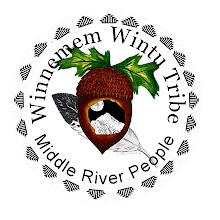Bruce Tokars "Salmon Speak to Governor Brown: Full Series
Click on the title to access the movie!!
The entire series on Salmon by Bruce Tokars. From his own words:
The entire series on Salmon by Bruce Tokars. From his own words:
What if salmon could speak? We imagine that they would have a lot to say about how difficult their lives have been because of the way humans have treated their environment. The past decade has not been kind to salmon but it is not too late to fix the problems that have pushed wild California salmon to the edge of extinction.
The person who can have the greatest impact on reversing salmon’s march to oblivion is California’s past and current governor, Jerry Brown. The people he hires or appoints to manage and repair California’s water system can make a difference. But they need to follow sound science and reject the hysterical political grandstanding of those who only care about their own greedy ambitions.
Fix the Delta
This is the starting point. Getting the Delta back to health will require stronger flows and much less water diversions. But if sound, peer-reviewed science is followed, then we believe that salmon can come back to health, too.
Habitat Restoration
Restoring habitat is critical to returning salmon runs back to healthy numbers. There is much work to be done in rivers and streams and the Delta. But science knows what needs to happen and if there is a will to fix salmon’s trashed habitat, they will bounce back.
Building Things
Dams, tunnels, and canals are not the answer to salmon’s problems. There are other solutions that make much more sense. Besides, given California’s fiscal health, expensive construction projects should be out of the question. The aborted water bond that was removed from the 2010 ballot and moved to 2012 is still a disaster, calling for more dams and more construction. Building things is still a part of the conversation but it is time to reject that approach, once and for all.
Water Conservation
Agriculture uses 80% of the developed water in California. Urban users account for 11%. Both agriculture and urban water users need to conserve. Price elasticity is the key to encouraging changed behaviors from all users.
The Best Science
Of all the points made in this video series this is THE most important. The best science available must be followed if we are to reverse salmon’s decline and restore them back to health. For too long, sound science has been dismissed or ridiculed by politicians and water managers unwilling to accept any solution that would result in reduced water deliveries. But it is clear that if the Delta is to be restored and salmon habitats renewed, then strong, peer-reviewed science must lead the way.
Governor Brown, the once bountiful runs of wild California salmon are depending on you and those who work for you, to be heroes. To do the right things that will reverse salmon’s sad decline and begin a recovery program that will restore them back to health. After all, salmon are California’s most senior water rights holder and we have a responsibility to fix what has been so wrong, once and for all.
The Human Costs
When salmon are in trouble, people are hurt. Fishing families that have depended on healthy runs of salmon are themselves becoming extinct. Families are hurting. Coastal communities are in trouble. The infrastructure that supports both commercial and recreational fishing is under severe stress and close to collapsing. This video, the last of our six-part series speaks to these issues.


 By Marc Dadigan
By Marc Dadigan